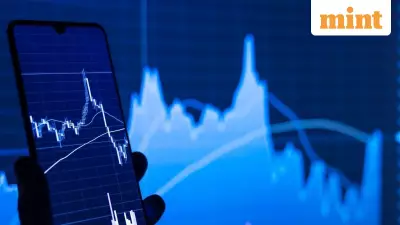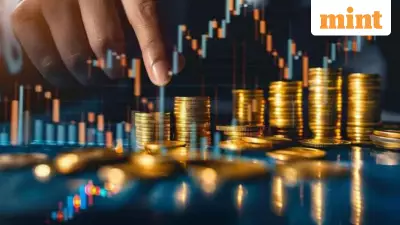
South Korea's benchmark Kospi index has achieved a remarkable milestone in 2025, surging an impressive 61% to cross the 4,000-point mark in what represents the strongest performance in a quarter century. The spectacular rally, driven by artificial intelligence enthusiasm and sweeping corporate reforms, has transformed the Korean exchange into a beacon of global market optimism.
The AI Spark That Ignited The Rally
The extraordinary market movement began with President Lee Jae Myung's bold political commitment to drive the index toward 5,000 points - a rare instance of a national leader setting specific market targets. What started as an ambitious vision has turned into a stunning reality, with the Kospi climbing from approximately 2,400 points at the beginning of 2025 to become the world's best-performing major stock benchmark.
The timing proved perfect as President Lee's proposal coincided with a global pivot toward AI and semiconductor stocks. This convergence created ideal conditions for Korean chip giants Samsung Electronics Co. and SK Hynix Inc. to lead the charge. According to market analysts, nearly half of the Kospi's 2025 gains have originated from these two semiconductor powerhouses alone.
Warning Signs Emerge Amid The Celebration
Despite the impressive numbers, concerns are growing about the sustainability of this rapid ascent. The market recently experienced significant volatility, with the benchmark tumbling nearly 4% during a single trading session amid a global tech stock rout. This sharp correction highlighted the underlying anxiety about heated AI valuations that has been building among investors.
Adding to the concern is the unprecedented level of retail participation using borrowed money. Margin trading has surged approximately 50% over six months, reaching around 26 trillion won in November according to the Korea Financial Investment Association. This substantial increase in retail leverage represents a potential vulnerability in the market structure.
International fund managers are already showing caution. Sam Konrad, an investment manager overseeing $2.8 billion at Jupiter Fund Management Ltd in Singapore, stated they don't feel the need to be significantly overweight Korean stocks. Overseas funds have returned to net selling this month, potentially making November one of the biggest outflow periods of the year.
Corporate Reforms: The Key To Sustained Growth
The future trajectory of the Kospi rally now hinges on the implementation of meaningful corporate governance reforms. While the Commercial Act amendments have been passed - representing a crucial first step toward enhancing board accountability - investors are watching for progress on additional measures.
Key reforms being closely monitored include legislation to lower dividend tax rates and a separate vote on mandatory cancellation of treasury shares, which conglomerates have historically used to maintain control. The effectiveness of these measures will determine whether the current momentum can be sustained.
Park Hong Bae, a lawmaker in the ruling Democratic Party and member of the Kospi 5,000 committee task force, expressed surprise at the market's rapid ascent, noting that it has exceeded even their most optimistic predictions.
Despite the impressive gains, valuation metrics suggest Korean stocks remain relatively affordable in global context. Samsung Electronics and SK Hynix trade at 10 and 7 times forward earnings respectively, compared to 16 for regional tech stocks and 27 for industry leader Nvidia Corp.
Jonathan Pines, portfolio manager at Federated Hermes, believes the market could potentially double or even triple if Korea's traditional valuation discount is eliminated through sustained reform efforts.
However, questions about enforcement remain. Notably, Samsung Electronics has yet to unveil its specific Value Up plan to boost shareholder returns. As Yiping Liao, portfolio manager at Templeton Global Investments emphasized, rhetoric can drive short-term performance, but concrete reforms are essential for long-term sustainability.
Kim Dojoon, chief investment officer at Zian Investment Management, summarized the current sentiment perfectly: If the market keeps racing at its current pace, it could hit 5,000 points but will likely fall back unless companies demonstrate genuine commitment to improving shareholder returns and strengthening market fundamentals.





